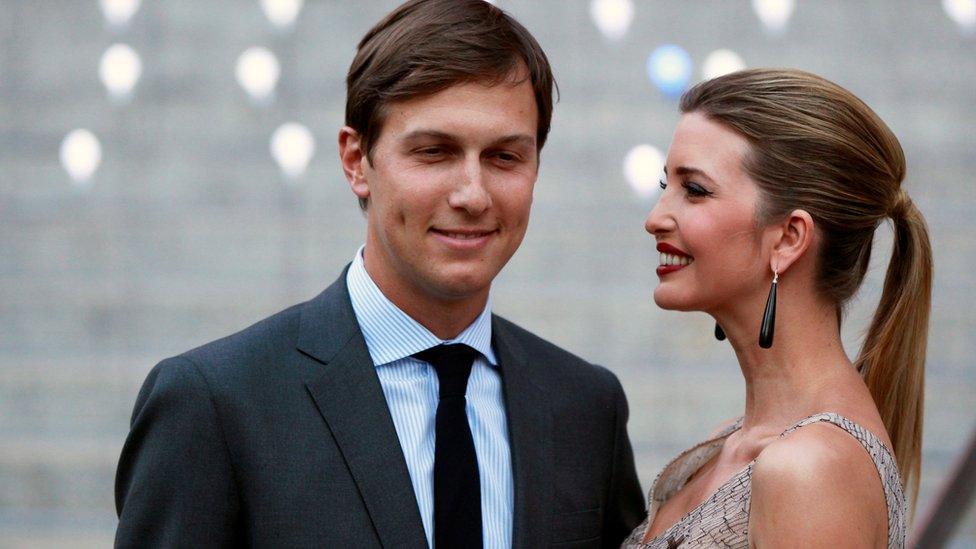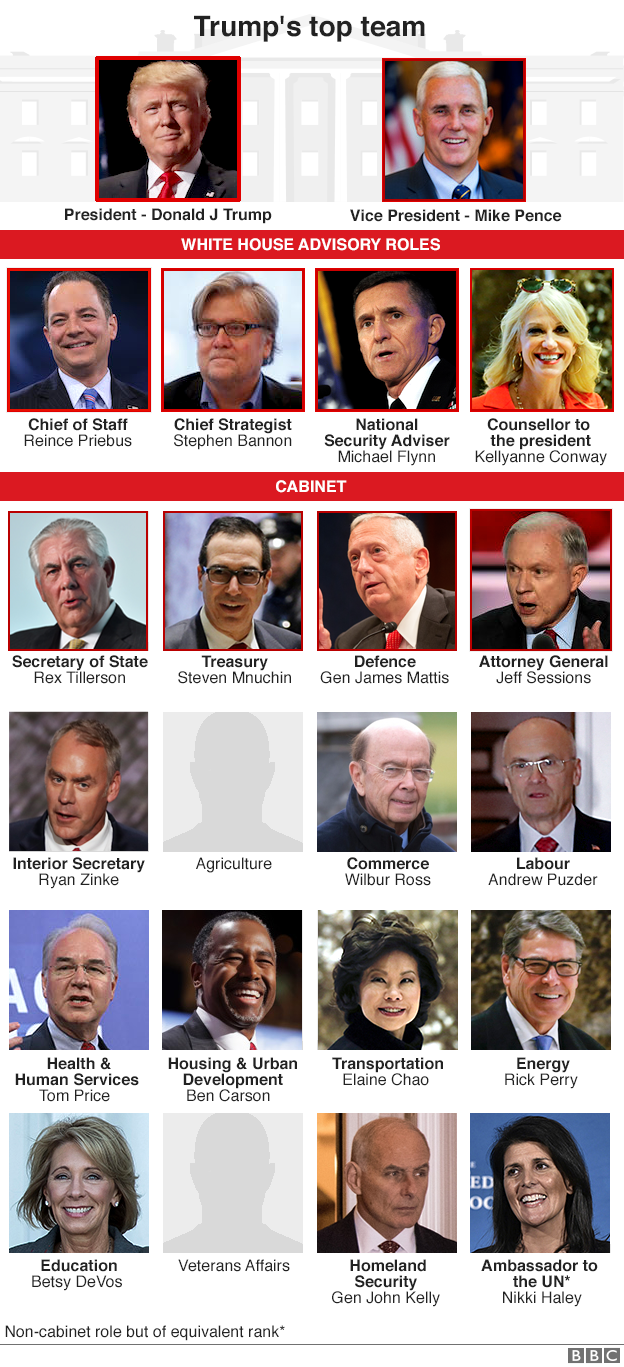Jared Kushner, Trump's son-in-law, named top adviser
- Published

Mr Kushner is married to Mr Trump's daughter Ivanka
President-elect Donald Trump has named his son-in-law, Jared Kushner, as one of his senior White House advisers.
The 35-year-old played a key role in the presidential campaign and his new White House job will cover both domestic and foreign policy.
Mr Kushner, who is married to Ivanka Trump, is a property developer with a wide range of business interests.
Democrats immediately called for a review of the appointment, citing nepotism laws and potential conflicts.
Members of the House Judiciary Committee urged the Department of Justice and the Office of Government Ethics to step in.
Earlier, Mr Trump hailed his son-in-law as a "tremendous asset" and he was proud to give him a "key leadership role" in the administration.
The New York businessman will be inaugurated as the 45th president on 20 January.
Members of Mr Trump's team have argued that a law barring officials from giving government jobs to relatives does not apply to White House positions.
There are also federal ethics laws that mean government employees cannot profit from any businesses.
Mr Kushner's lawyer has said he would step down as boss of his family's real estate business if he took a White House job, and extricate himself from some of his assets.
Jamie Gorelick of law firm WilmerHale said Mr Kushner was committed to complying with federal ethics laws and had consulted with the Office of Government Ethics about what steps to take.
Mr Kushner was often seen by his father-in-law's side during the presidential campaign and was heavily involved in its digital strategy.

Analysis - Anthony Zurcher, BBC News, Washington
Although Mr Kushner served as a close confidant to Mr Trump during his presidential campaign, an official position in the Trump administration was thought by many to run counter to anti-nepotism laws dating back to the 1960s.
According to media reports, however, Trump team lawyers believe they have found a way around those restrictions, which they say only covers government "agencies" and not the office of the White House.
There are also reports that Mr Kushner may work in the White House without drawing a government salary.
Mr Kushner, who like Mr Trump is involved heavily in New York area real estate, has begun divesting himself of some business considerations in preparations for a possible ethics review.
That may be easier said than done, however, given his family's vast real-estate holdings, including ties to foreign nationals investing in the US.

He was said to have played a role in the ousting of New Jersey Governor Chris Christie from the transition team during the campaign.
While US attorney for New Jersey, Mr Christie prosecuted Mr Kushner's father for tax evasion and witness tampering, and he served a jail sentence.
Mr Kushner has also been present at Cabinet interviews and in key meetings with foreign leaders.
He owns 666 Fifth Avenue, a skyscraper a few blocks down from Trump Tower, and aged 25, he bought the New York Observer newspaper.
Several of Mr Trump's Cabinet picks have business interests that will be scrutinised at confirmation hearings taking place this week.

What is the nepotism law?
prevents public officials from promoting a relative "to a civilian position in the agency in which he is serving or over which he exercises jurisdiction or control"
was signed into law by President Lyndon Johnson in 1967
thought to have been prompted by JFK's appointment of brother Robert to attorney general post in 1960
the law would stop a president from giving a Cabinet job to a relative
but whether it applies to non-Cabinet posts like advisers is untested

